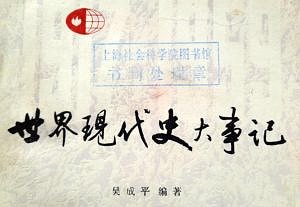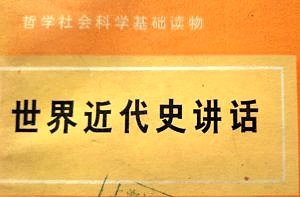Project
Research Agenda
After the end of the Cold War historians in China and Taiwan have started to question Western models and paradigms of historiography that had been introduced to East Asia since the late nineteenth century. In recent years, their writings have become increasingly available in English and German translation, aiming at questioning Eurocentrism in the humanities. However, what is perceived as the pursuit of discursive power in non-European and American academia is also often (mis-)understood as propaganda or believed to harbor political ambitions when the dissemination of a so-called more „Chinese“ understanding of history and culture is integrated into the soft power policy of the Chinese state.
Instead of perpetuating the often observed dichotomy of Chinese vs. Western ways of writing history, we propose to seek a more complete understanding of different Chinese scholarly traditions, and a stronger awareness of the multifarious voices among historians in China and Taiwan.

Funded by the Volkswagen Foundation (2021-28) this project plans to decipher the social conditions of knowledge production by strengthening a translingual and transcultural understanding of basic historical concepts in global history, which includes methodological notions such as transfer 迁移, interaction 互动/交涉, exchange 交流, divergence 分流, convergence 合流, and interconnectivity 互为关联.
The project does so in three ways.
First, in cooperation with global historians in China, we identify the historically and culturally specific conditions of knowledge production. The project addresses the discussions of different methodologies among Chinese historians, ranging from debates on the applicability of so-called Western models to the insistence on a distinct Chinese school of global history. At the same time, we fathom the potential contributions of Chinese historians to the development of a truly global history writing.

Second, to redefine the disciplinary boundaries between sinology and historical sciences by analyzing how key concepts travel in global history writing. These range from the obvious ones such as nation, imperialism, civilization, revolution, and progress (often perceived as universal), to indigenous concepts such as tianxia 天下 (all under heaven), wangdao 王道 (the kingly way), he 和 (harmony), etc. A translingual awareness of how cultural assumptions and political rhetoric shape the use of these concepts in history writing will facilitate the interdisciplinary reading of global history texts and thus contribute to the further integration of Chinese history into historical sciences in Europe.
Third, to compile an open-access bilingual handbook on Key Concepts in Modern Chinese Historiography, as well as to publish translations of contemporary historiographical key texts and resources into German and English that can serve as teaching materials.
A Chinese translation of this outline can be found in this pdf-file.
A list of suggested readings can be found in this pdf-file.